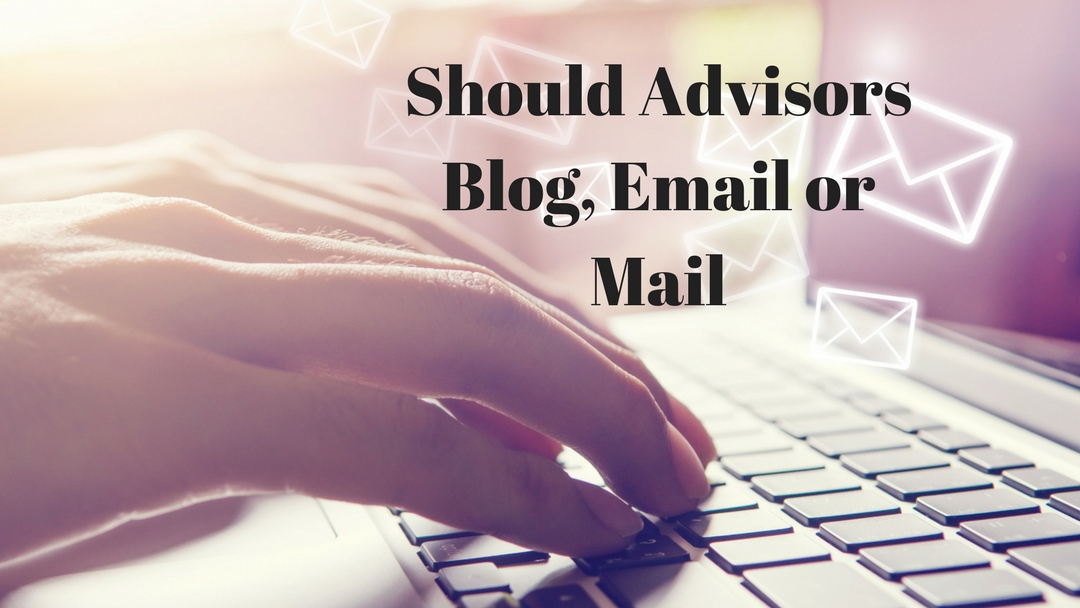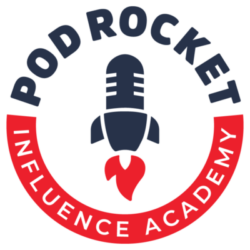Let’s say you want to write a timely article and you’re wondering how to distribute it to your readers. You might also be wondering how to write it. And you might also wonder how to make sure it gets read as much as possible.
You and thousands of advisors are in the same boat.
What method is best?
Scenario: You want to write an article about the pending US election and the potential impact on your financial life.
LETTER – MAIL
There are some traditionalists out there who swear by handwritten notes and even mailed letters. I get that using a “different medium” has its benefits – for starters, it’s less crowded. And I do agree that a personal written note or mailed letter have a charm and sincerity about them. However, I don’t see how an email and/or blog post can’t have the same sincerity. The difference, and it’s an important one, is that notes and letters are much less shareable. Sharing is marketing. So if you plan on sending a letter a few times a year, it’s a lot of work but it might be a nice touch. However, if it were the only way you communicate with your audience, it would border on embarrassing. Use letters only when they are personalized, one-off messages.
Benefits:
- Very personable
- Differentiates you (although marginally at best)
Disadvantages:
- Not shareable
- Not trackable
- Says, “old fashioned”
- Takes long to produce and get to people’s doors
An email is quick and can reach many people in less time than a letter. The “open rates” from your clients should be good. You should send to your prospects, but your “open rate” may not be as good. You can send it separately if you want to track that. However, the hardest thing about reaching people via email is how much noise you’ll have to compete with. People can get hundreds of emails every day. No matter how much time you put into crafting your message, it’s no use if people don’t even see your email.
Benefits:
- Personable
- Convenient
- Trackable
- Reasonably effective open/read rates
- Somewhat shareable
- Inexpensive
- Promotes clicks if set up that way
Disadvantages:
- Not easily shareable
- Gets deleted
- Gets lost in people’s crammed inboxes
- For the record
Email open rates and blog post read rates aren’t impacted as much by “subject heading” or “title” as they are value, clarity and simplicity. When you draft an email/post/letter, how it’s formatted, how it reads, what it says, and how clear that was from the title, means the most. That’s how you win the hearts and minds of your readers.
BLOG POST
This is a perfect example of why you need a blog – to share your article with the world. When you blog instead of sending emails, you drive traffic back to your site and other good things happen there. Plus, emails are not as “shareable” as blog posts. You need your clients to share your stuff as much as possible. With your blog, you now have an archive of shared knowledge so readers can quickly see proof of your professionalism and credibility.
Benefits:
- Drives traffic
- Increases traffic because it gets shared
- Enhances credibility
- Positions you as key person of influence
- Promotes referrals from clients, COIs and prospects to your blog
- Blogs are the most effective in terms of reaching an audience and motivating them to share your message. But it’s not without disadvantages.
Disadvantages:
- Time-consuming to write
- Writing isn’t easy for everyone
- Need a regular posting schedule to build readership
- Have to promote on social media
There are many ways around these disadvantages. They include hiring writers, working with social media advisors to build a schedule, etc. But these methods will cost you money and a lot of time that you just don’t have.
There’s a new solution to that problem: podcasting.
Top Advisor Marketing specializes in fixing the problem of having great stories and messages but no time to create quality content to drive traffic and build influence. .
All you need to do is talk. Is Podcasting right for you?
10 Benefits of Starting Your Own Financial Podcast
Launch Your Practice with a Podcast
Equipment to Start Your Financial Podcast
10 Tips for the Perfect Podcast





